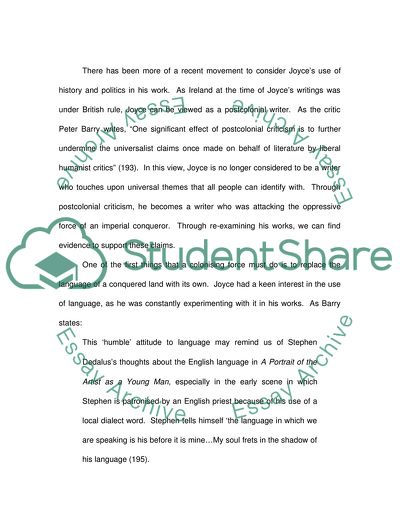Cite this document
(“Joyces Politics and Irish History Essay Example | Topics and Well Written Essays - 2000 words”, n.d.)
Joyces Politics and Irish History Essay Example | Topics and Well Written Essays - 2000 words. Retrieved from https://studentshare.org/literature/1546432-examine-joyces-traetment-of-irish-history-and-politics-in-his-work
Joyces Politics and Irish History Essay Example | Topics and Well Written Essays - 2000 words. Retrieved from https://studentshare.org/literature/1546432-examine-joyces-traetment-of-irish-history-and-politics-in-his-work
(Joyces Politics and Irish History Essay Example | Topics and Well Written Essays - 2000 Words)
Joyces Politics and Irish History Essay Example | Topics and Well Written Essays - 2000 Words. https://studentshare.org/literature/1546432-examine-joyces-traetment-of-irish-history-and-politics-in-his-work.
Joyces Politics and Irish History Essay Example | Topics and Well Written Essays - 2000 Words. https://studentshare.org/literature/1546432-examine-joyces-traetment-of-irish-history-and-politics-in-his-work.
“Joyces Politics and Irish History Essay Example | Topics and Well Written Essays - 2000 Words”, n.d. https://studentshare.org/literature/1546432-examine-joyces-traetment-of-irish-history-and-politics-in-his-work.


